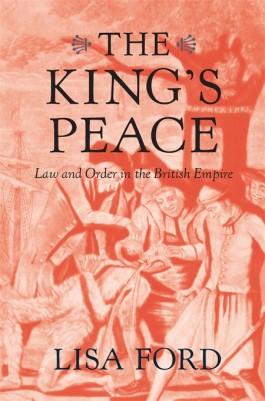
During the eighteenth and nineteenth centuries, the British Empire responded to numerous crises in its colonies, from North America to Jamaica, Bengal to New South Wales. This was the Age of Revolution, and the Crown, through colonial governors, tested an array of coercive peacekeeping methods in a desperate effort to maintain control. In the process these leaders transformed what it meant to be a British subject.
In the decades after the American Revolution, colonial legal regimes were transformed as the king’s representatives ruled new colonies with an increasingly heavy hand. These new autocratic regimes blurred the lines between the rule of law and the rule of the sword. Safeguards of liberty and justice, developed in the wake of the Glorious Revolution, were eroded while exacting obedience and imposing order became the focus of colonial governance. In the process, many constitutional principles of empire were subordinated to a single, overarching rule: where necessary, colonial law could diverge from metropolitan law. Within decades of the American Revolution, Lisa Ford shows, the rights claimed by American rebels became unthinkable in the British Empire. Some colonial subjects fought back but, in the empire, the real winner of the American Revolution was the king.
In tracing the dramatic growth of colonial executive power and the increasing deployment of arbitrary policing and military violence to maintain order, The King’s Peace provides important lessons on the relationship between peacekeeping, sovereignty, and political subjectivity—lessons that illuminate contemporary debates over the imbalance between liberty and security.